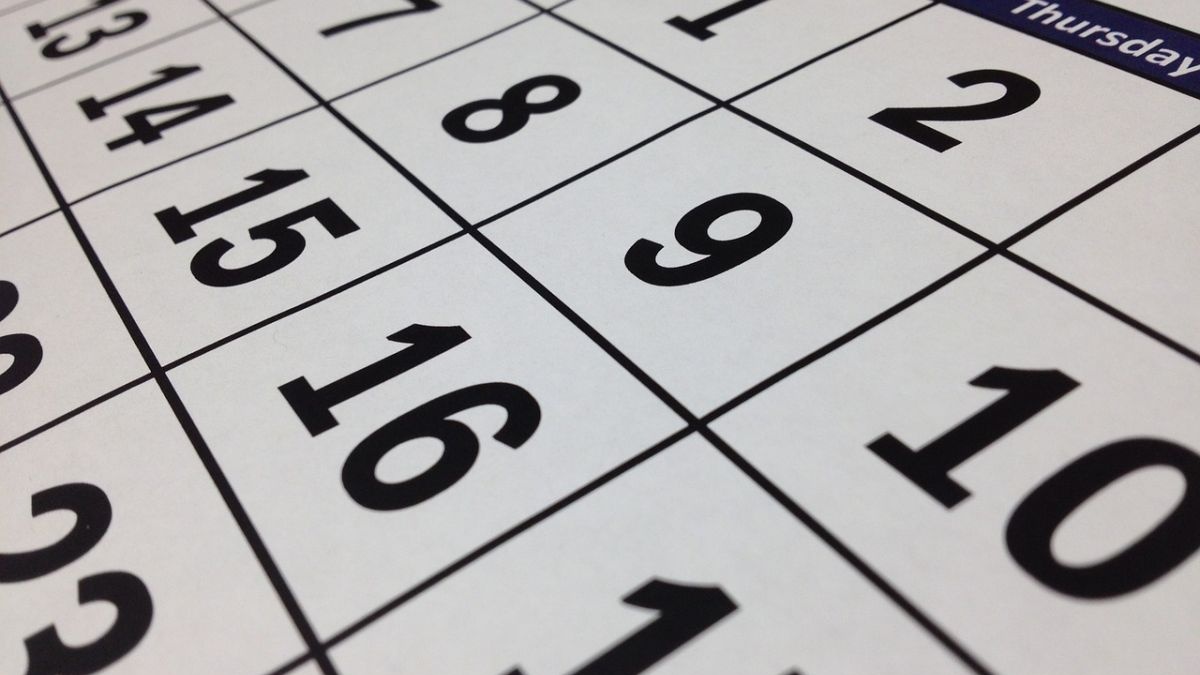This is the day the LORD has made; let us rejoice and be glad in it. (Psalm 118:24)
If you have been feeling a little down the last few weeks and can't figure out why, maybe I can help explain it for you. According to researchers, it was your calendar's fault. Apparently, the next to last Monday of January was the most depressing day of the year. The reasoning included the following:
- Credit card statements crowded with Christmas charges are now due.
- The weather's turning (or staying) colder.
- We've been living with fewer daylight hours, so we're getting exposed to less sun.
Add all those factors together, and someone, somewhere - I don't recall who or where or why - decided that it made for the most depressing day of the year.
I heard this startling revelation on the car radio on that horrible Monday in January at about 8:00 in the morning. I wondered if it was a problem that I had actually started out the day in a pretty good mood. However, a curious thing happened. The rest of the day, every time I encountered someone who was rude or impatient or who just seemed a little down, I thought to myself, "Well, there you go. No wonder. It's the most depressing day of the year, after all."
No wonder so many people greet February with a groan - more bills, little sunlight, and lots of snow! The good news is that we seem to have gotten the worst day of the year out of the way. It can only get better from here!
Maybe I'm making a little too much out of this. However, I do wonder why we do this to ourselves? Why do we feel the need to announce to the nation that we're all supposed to feel bad on a certain day? And then, why base it on the criteria of credit-card debt, temperature, and the number of hours of daylight? Aren't there people who didn't go deeply into debt over Christmas? Aren't there people who happen to like snow and cold temperatures? Are they supposed to feel bad along with everyone else - sort of sympathetic depression?
Okay, I know, I'm definitely making more out of this than I should. But please indulge me while I ask a couple of questions. Could it be that a false assumption lies beneath this designation of the next to last Monday of January as the most depressing day of the year? Could it be that outside circumstances don't have to determine even one person's emotional state, let alone an entire nation's psyche? Could it be that a person can be happy even when life is less than ideal?
While recognizing that we're human and subject to human moods and tragedies and stresses and chemical imbalances, I want to argue that circumstances - however dark they might be - don't doom us to depression. I think of Paul and Silas singing hymns in prison and the apostle Paul later writing from another prison that his readers should "rejoice in the Lord always." I think of people like my late grandmother, who always smiled, laughed, and radiated an almost childlike joy in the simplest things of life even though she lived in almost constant pain for decades. You probably know people like that, too. God bless these people - people who always seem to have a reason to laugh and smile, who never seem to be broken by life, who can pick out a silver lining in any cloud.
"This is the day the LORD has made," the psalmist sang. "Let us rejoice and be glad in it." Emphasize the "this" if you need to do so - if news reports or any of life's admittedly difficult circumstances are making you think that today might be the most depressing day yet. "This is the day that the LORD has made!" It's a day of salvation and celebration; a day when God accepts what human beings reject and a day that seen through the right eyes might even be called marvelous:
"I will give you thanks, for you answered me; you have become my salvation. The stone the builders rejected has become the capstone; the LORD has done this, and it is marvelous in our eyes." (Psalm 118:21-23)
Joy, you see, depends upon recognizing and acknowledging the work of God in our world and in our lives. It depends upon giving thanks to him, since he has - quite literally --- become our salvation through Jesus. It depends upon believing that in the end, it's not what the world around us says that defines reality, but God.
Perhaps this life strategy may not seem intuitive. We tend to tie our happiness directly to the attainment of the goals we've set for ourselves or to the actions and well-being of the people we love or whose opinions matter most to us. We think happiness depends upon security, affluence, health, or marriage - despite the fact that our world is full of secure, affluent, healthy, married people who are certainly not happy.
So I think it's helpful to adopt the practice of the psalmist: let us rejoice and be glad in this day - in today - because of what God has done and continues to do for us. The most depressing day of the year? No. This is the day the Lord has made; and it's made with compassion, mercy, grace, love, hope, and yes, joy. This is the day the LORD has made; he made it while he hung on a cross and bled to give us life, grace, purpose, and future.
You don't really need any more reason to rejoice and be glad, do you? Not even on a cold, possibly snowy, February day, long after the excitement of Christmas has passed, the bills of Christmas have arrived, and the shortest days of the year have passed!











Comments
Have thoughts on this article? Leave a comment